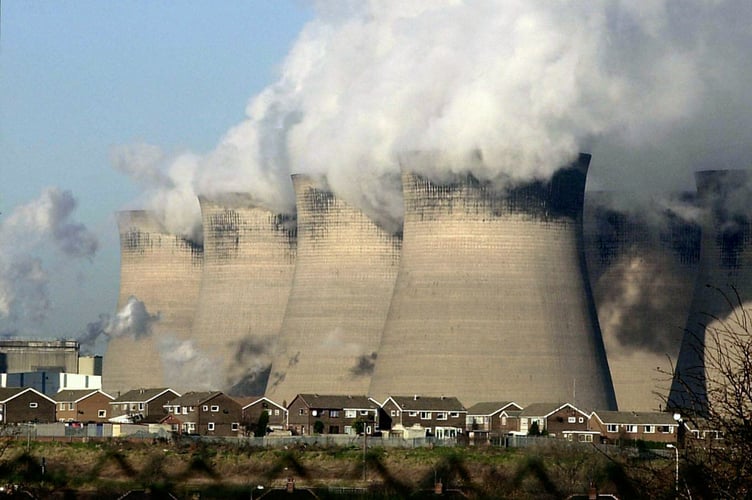Thousands of people are exposed to dangerously high air pollution in Somerset neighbourhoods, a new analysis has found.
Analysis from Friends of the Earth, an environmental organisation, shows more than 36.1 million people in England and Wales, including 8 million children, were breathing air with hazardous levels of nitrogen dioxide in 2022.
It comes as the Government announced it was pushing back the deadline for several environmental policies such as the ban on sales of new diesel and petrol cars, which are significant contributors to greenhouse gas emissions.
Nitrogen dioxide can affect the respiratory system and is associated with higher mortality rates. It is especially dangerous for children as it increases their risk of respiratory infection and may lead to poorer lung function in later life.
The data uses information from the census to divide the country into over 33,000 neighbourhood areas, each with between 1,000 and 3,000 people living there.
The analysis revealed 5,187 people in three Somerset neighbourhoods were exposed to air pollution exceeding the World Health Organisation recommended safety limit.
Air pollution has been linked to up to 36,000 premature deaths every year in the UK.
Across England and Wales, three in five neighbourhoods were found to have polluted air.
Friends of the Earth’s head of policy, Mike Childs, said: “It’s a national scandal that millions of people across the country live in areas where air pollution is double the safety level, with children, the elderly and those with pre-existing health conditions most at risk.”
Areas where the recommended limit was exceeded twice accounted for 9% of all neighbourhoods, with 5.9 million people breathing dangerously polluted air.
Further figures by the Royal College of Physicians show the issue costs the UK economy £20 billion annually through NHS costs and workdays lost due to illness.
There were two schools in the areas of Somerset where the dirty air was recorded, affecting 1,100 children.
Mr Childs added: “Rishi Sunak’s back-pedalling on measures aimed at tackling poor air quality – such as funding better cycling provision and financial support and incentives to switch to cleaner cars – will simply prolong people’s misery.
“Most of the areas with really bad air pollution are in Labour constituencies, so if Keir Starmer wins the next election, he will be under intense pressure to give this issue the priority it deserves.”
A Department for Environment, Food and Rural Affairs spokesperson said: “This data makes comparisons to WHO guidelines which are intended to inform the setting of air quality standards and are not ready-made targets for adoption. Natural and transboundary sources alone mean that even if all humans left the South East it would still have levels higher than the WHO guideline.
“We absolutely recognise the importance of protecting people from air pollution – which is why we have set stretching new targets for fine particulate matter, and are taking comprehensive action set out in the Environmental Improvement Plan 2023 to improve air quality for all.”


